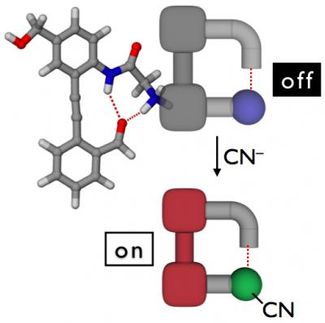“Multi-spectra glasses” for scanning electron microscopy
The scanning electron microscope is not only used for precisely surveying the surface topology of samples, but also for determining their chemical compositions. This is done by exciting the atoms to fluoresce under irradiation by an electron beam while scanning the sample. This secondary emission provides information about the location and type of element, insofar as the analysis is sufficiently precise. However, the lighter elements of the periodic table such as lithium, beryllium, boron, carbon, and nitrogen emit secondary fluorescence in an energy range that cannot be sufficiently well resolved by energy dispersive spectrometers (EDS).
A solution to this problem has now been developed at HZB. Prof. Alexei Erko, head of HZB’s Institute for Nanometre Optics and Technology, has previously designed and patented innovative optics using what is known as reflection zone plates. They are employed in synchrotron sources like BESSY II for analysing soft X-ray radiation. This optics, consisting of several thousand concentric or elliptical structures, do not refract the radiation the way a glass lens does, but instead diffract them so that interference occurs.
“Our colleagues from the company IfG Institute for Scientific Instruments had asked me if reflection zone plate optics could also be used in an electron microscope to increase the resolution in the low-energy region. Based on this idea a research project at the non-profit Institut für angewandte Photonik e. V. and at the company IfG GmbH, a following product development project was executed resulting in a functional prototype of a specialised wavelength dispersive spectrometer (WDS). Using this instrument you can very precisely detect the light elements such as lithium, boron, beryllium, carbon and oxygen with an electron microscope”, explains Erko.
The spectrometer consists of an array of 17 reflection zone plates covering the energy range of 50-1120 eV. To achieve even higher resolution, the scientists produced optics using 200 reflection zone plates to provide nearly continuous spectral measurements in the energy range of 100-1000 eV.
“High resolution in this energy range is important for detecting lighter elements of the periodic table. That is particularly important for research on energy-related materials like solar cells, batteries, and solar fuels, as well as catalysts. But it could also be useful in research on magnetic materials and in life sciences. We are very excited about what this new tool can be used for”, says Erko.
Most read news
Original publication
Topics
Organizations
These products might interest you
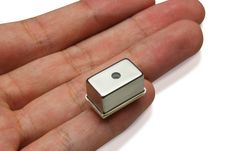
Microspectrometer by Hamamatsu Photonics
Ultra-compact microspectrometer for versatile applications
Precise Raman, UV/VIS and NIR measurements in portable devices
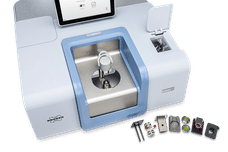
INVENIO by Bruker
FT-IR spectrometer of the future: INVENIO
Freely upgradeable and configurable FT-IR spectrometer

contrAA 800 by Analytik Jena
contrAA 800 Series – Atomic Absorption. Redefined
The best of classical atomic absorption and ICP-OES spectrometry are combined in the contrAA 800
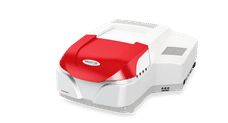
SPECORD PLUS by Analytik Jena
SPECORD PLUS Series - Maximum precision in UV/Vis
The modern classic guarantees the highest quality
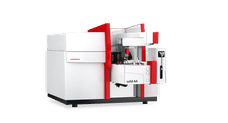
ZEEnit by Analytik Jena
Zeeman Technology for Maximum Sensitivity – Matching any Analytical Problem
Transverse-heated graphite furnace for optimum atomization conditions and high sample throughput
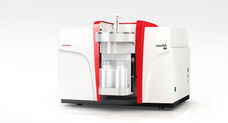
novAA® 800 by Analytik Jena
The Analyzer 4 You - novAA 800-Series
The reliable all-rounder, making routine analysis efficient and cost-effective
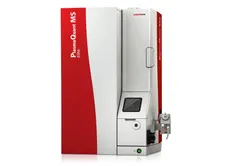
PlasmaQuant MS Elite by Analytik Jena
LC-ICP-MS Is the Key to the World of Elemental Species
Highest Sensitivity and Lowest Detection Limits with PlasmaQuant MS Series and PQ LC
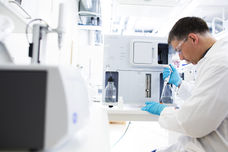
Biacore catalogue by Cytiva
Get started with Surface Plasmon Resonance interaction analysis - which system is right for you?
Discover simpler and faster Surface Plasmon Resonance (SPR) with Biacore systems
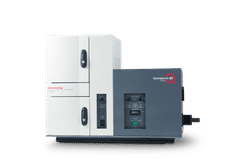
Quantaurus-QY by Hamamatsu Photonics
High-speed UV/NIR photoluminescence spectrometer
Precise quantum yield measurements in milliseconds without reference standards
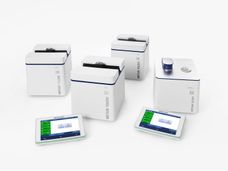
FastTrack™ by Mettler-Toledo
FastTrack UV/VIS Spectroscopy - Speed Up Your Measurements
Fast, reliable & efficient measurements with traceable accuracy in a small footprint

Get the analytics and lab tech industry in your inbox
By submitting this form you agree that LUMITOS AG will send you the newsletter(s) selected above by email. Your data will not be passed on to third parties. Your data will be stored and processed in accordance with our data protection regulations. LUMITOS may contact you by email for the purpose of advertising or market and opinion surveys. You can revoke your consent at any time without giving reasons to LUMITOS AG, Ernst-Augustin-Str. 2, 12489 Berlin, Germany or by e-mail at revoke@lumitos.com with effect for the future. In addition, each email contains a link to unsubscribe from the corresponding newsletter.
